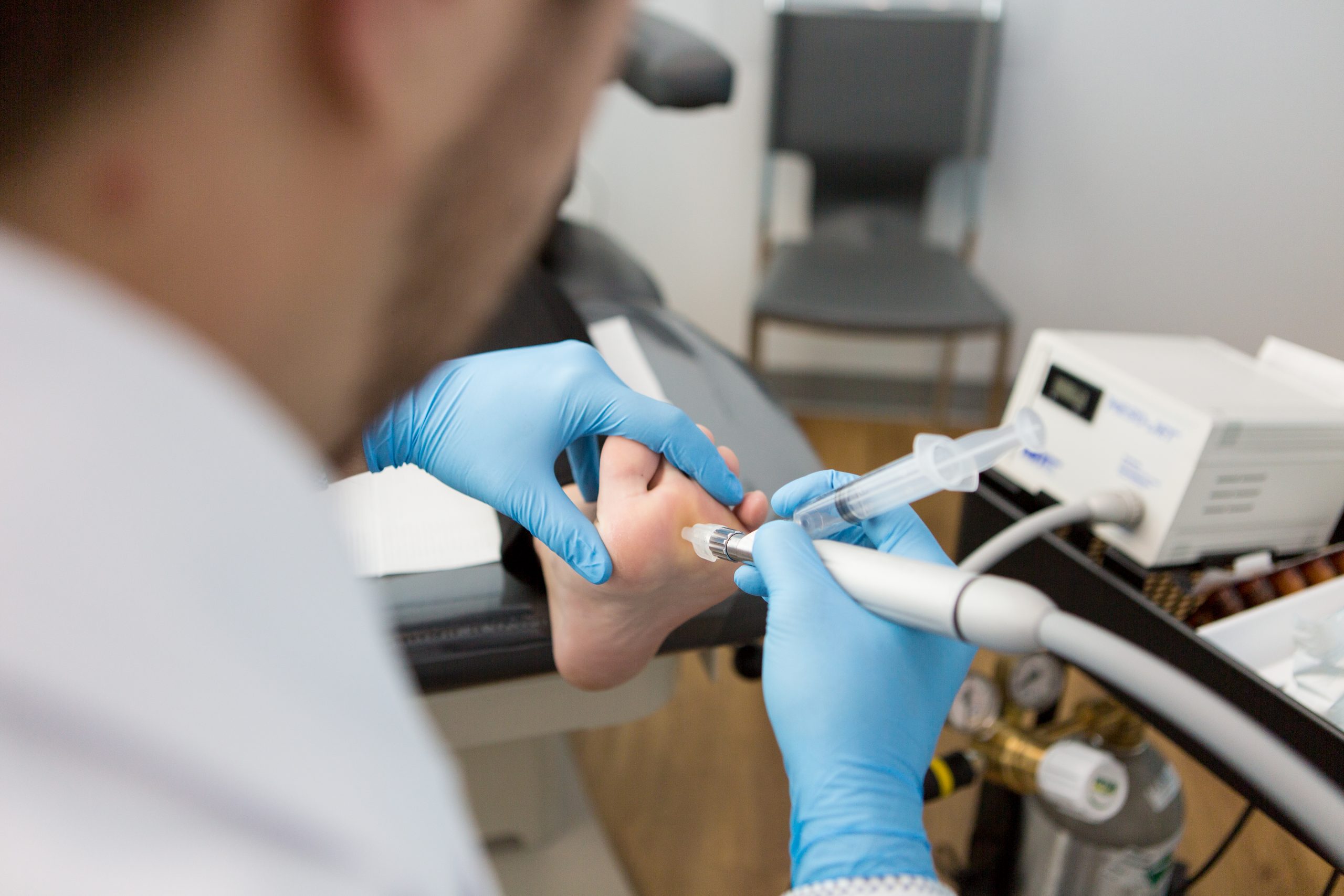Plantar warts are common skin lesions that can be quite unsightly. They are often harmless, although they can be infectious and unpleasant.
In reality, these growths on the foot might cause bleeding or create other issues such as irritation, pain, or infectious cellulitis in the long run.
Furthermore, if you are diabetic, elderly, or immunosuppressed, your plantar warts are more likely to cause problems.
Fortunately, plantar warts may be treated in a variety of ways to reduce the risk of infection and consequences. Let’s have a look at those.
Prescription medications
Your podiatrist can write you a prescription for painless wart treatment at home. The majority of these medicines are used topically.
Prescription medication care can:
- Treat plantar warts at home;
- Treat plantar warts completely painlessly.
However, this type of treatment…
- Is usually longer lasting;
- Must be flawlessly followed;
- Has a lower success rate.
Cantharone Plus or Cantharone
Cantharone Plus, also known as Canthacur PS, is a topical treatment for plantar warts.
Despite its high efficacy, this medicine is not accessible over the counter and must be administered by a podiatrist or a physician to the affected region. If not used appropriately, Cantharone Plus can cause burns. It’s especially crucial to avoid using it on a foot that has a cut or scrape. Follow-up appointments are also required to determine the efficacy of your treatment.
Treatments with Cantharone Plus can:
- Eliminate plantar warts in 2-6 visits;
- Leave no scarring;
- Be used on children.
However, this type of treatment…
- Is painful for a period of 2 to 4 days;
- Requires regular visits to the podiatrist every 2 weeks.
Pharmaceutical treatments (bleomycin sulfate injection)
Bleomycin Sulfate (also known as Bleomycin) is a very successful, precise, and strong drug for the treatment of the most obstinate plantar warts. Bleomycin, which is injected into the skin by a podiatrist using a needle-free injector, is becoming a more popular therapy due to its ease and quickness.
Bleomycin sulfate treatments can:
- Effectively treat all types of plantar warts;
- Stop more severe and resistant warts;
- Reduce the number of visits to the podiatrist (mild to moderate cases rarely require more than one visit);
- Prevent human papillomavirus (HPV)-infected cells from multiplying.
However, this type of treatment…
- Is not suitable for children;
- Can be painful for a few seconds when injected;
Laser surgery for recalcitrant plantar warts
Laser surgery is appropriate for the most persistent plantar warts that have failed to respond to previous treatments. The laser’s goal is to damage the blood vessels in the plantar wart so that it may be totally removed. This form of minor foot surgery is only used as a last option to stop persistent warts from spreading.
Laser surgery can be used to:
- “Burn” away recalcitrant plantar warts;
- Treat warts that are resistant to other treatments;
- Avoid the administration of medication;
- Accelerate the duration of the treatment.
However, this type of treatment…
- Can be painful;
- Can leave scars;
- Has a variable effectiveness depending on the photosensitivity of the patient.
What happens once the treatment is completed?
After your podiatrist has treated your plantar warts, you should follow these guidelines to avoid recurrence:
- Do not walk barefoot, especially in public places;
- Air your feet well to keep them dry;
- Clean your feet with soap after walking in a public place.
FootNetwork – Learn more
Do you want to learn more about how to treat plantar warts? Our website is full of invaluable resources to assist you!
To find the best solution for your problem, visit a podiatry clinic near you. It’s a fantastic method to say “goodbye” to plantar warts.
Take care of your feet, they’re precious!
Find a podiatry clinic near you.

